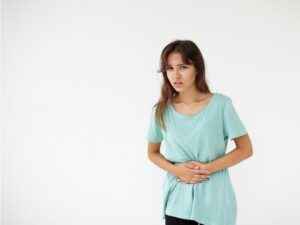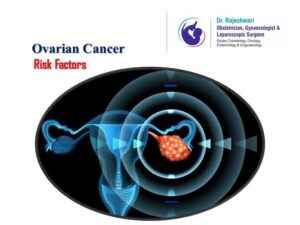Menopause is the normal process of aging where there is the permanent cessation of menstruation. You might have reached menopause if you have not had periods for more than twelve months.
Women go through menopause mostly in their 50s – but they can also reach menopause before age 50. Menopause age differs widely in women. In India, a majority of women reach menopause between 48–52 years. Some women go through it even earlier if they had a hysterectomy done to remove the uterus. Chemotherapy and radiotherapy are some factors that can also lead to early menopause. Whatever may be the reason for early menopause, you should know the following signs and symptoms associated with it.
Are you heading towards Menopause?
You may start noticing changes months or even years before you reach menopause. Many women don’t exactly understand what is actually happening in their bodies when they are nearing menopause. They may notice certain changes as they pass through the period that leads to menopause. This period is known as perimenopause. Being a woman, all you can do is pay attention to the changes you are undergoing and know how you are feeling.
Remember! This period is not the same for all women as some women don’t experience any symptoms at all. Some women may experience symptoms such as irregular periods and hot flashes. In general, perimenopausal symptoms vary from woman to woman.
Top 5 Signs and Symptoms of Menopause
Trouble Sleeping
Some women may experience night sweats along with sleeping difficulty. Though trouble sleeping is a common health issue in women due to several reasons, it can also be a sign of approaching menopause. You can consider this as a problem associated with menopause if you don’t have problems sleeping before. If sleeping issues linger on for a while and you can’t make why it is happening on a regular basis, then talk to your gynecologist regarding this issue – especially when you are in your 40s.
Irregular Periods
For a majority of women, this is the most prominent sign that they are on their way to menopause. You may notice that your periods have become lighter or somewhat heavier than usual or may come less often or more often or last shorter or longer than before.
During the perimenopausal stage it becomes difficult for you to predict when your period may resume or next period will come or whether it will last longer as usual or becomes shorter.
Hot Flashes and Night Sweats
You may experience hot flashes and night sweats during sleep. Sometimes, they are so intense that they may wake you up. For no apparent reason, you may feel hot or warm suddenly. Hot flashes make your skin red hot and your heart may beat faster. You may also feel cold suddenly afterward.
Night sweats and hot flashes, like many other symptoms of menopause may vary widely. In some women, they may go away within a minute or so – and, in some women, they may last longer than usual. They can be mild to severe. A woman can have many in a day, one week, or months or may never have them at all.
Some women may continue to experience hot flashes even for years after they have stopped their periods. Post-menopausal hot flashes are seen in some women.
Talk to your gynecologist if you are not sure whether your hot flashes are related to menopause.
Mood Changes
Frequent change of mood – it could be a sign of menopause. When you feel moody – it could also be due to many reasons as many factors can affect your mood. One such reason changes in the levels of a hormone that happen during menopause. Some women may become anxious or depressed. Your mood gets disturbed and symptoms may become worse if you have had anxiety and depression in the past. You should not feel moody for whatsoever reason. Therefore, if you are experiencing changes in your mood and seem to be looking down for more than a few weeks, then talk to your doctor.
Changes in your Body
Women approaching menopause can notice changes in their bodies. They tend to put on weight – especially around their waist. They may have less muscle mass in general. Their joints become stiff and they find it difficult to move. Skin and hair too become thinner and lustreless. The most prominent sign is weight gain during menopause.
There might be associated psychological changes (headache, irritability, fatigue), lack of interest in sexual life, increase in the tendency for fractures due to osteoporosis, increase in the risk of stroke due to cholesterol.
Bottom Line
Though perimenopause and menopause are natural processes associated with some troubling symptoms, you can still keep them in check by keeping your strength uplifted, staying in shape, and remaining active – to know more about the management of perimenopausal and menopausal symptoms, meet me personally.
Remember! Any bleeding, even just spotting, after menopause isn’t normal. You need to talk to your doctor.




